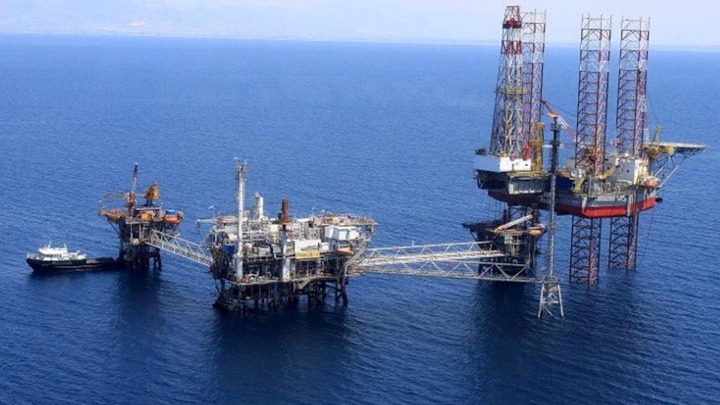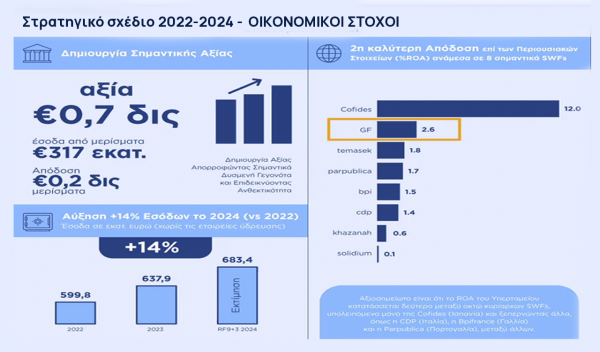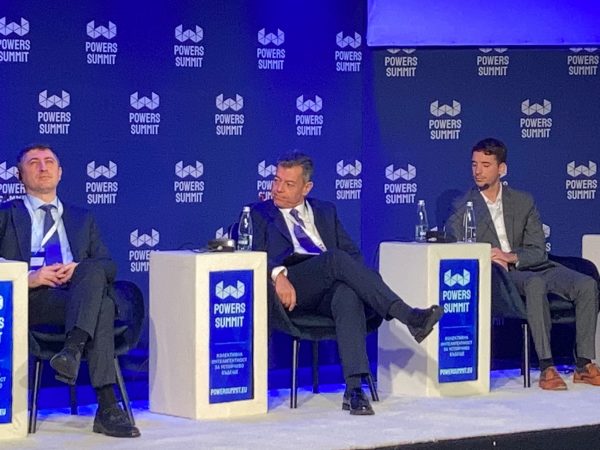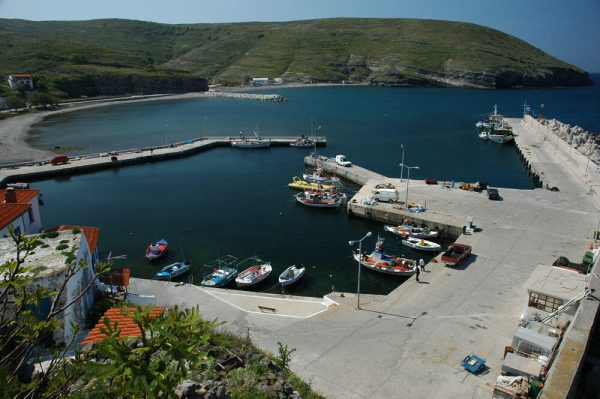
The ministerial decision for the environmental approval of the hydrocarbon research and exploitation program in the marine areas “southwest of Crete” and “west of Crete” based on the Strategic Environmental Impact Study (SEIS) is legal and consttutional, according to Greece’s highest costitutional judicial body, the Council of State-CoS. These are the two marine plots on which seismic surveys have been started by the ExxonMobil/Helleniq Energy consortium that owns the rights in the area.
Research for hydrocarbons in Crete and Peloponnese has begun
The environmental organizations that had appealed against the ministerial decision argued, among other things, that it had been issued without the required decision for the approval of the SEIS. However, according to the decision of the Council of State, the contested ministerial decision proceeds with the environmental approval of the hydrocarbon research and exploitation program in the two marine areas of Crete, a fact which is also reinforced by the following reference included in it: “The SEIS is an integral part of this decision. This decision must be explicitly mentioned in the acts or decisions approving the program”. Therefore, according to the Council, the pleas must be dismissed as unfounded.
No Marine zoning approval is required
Also, the environmental organizations argue that the contested act is illegal, because it was issued without prior maritime spatial planning. However, according to the CoS, prior to the environmental approval of the program, it was not required that marine spatial planning had been approved and that the distribution of uses and activities per marine sub-region had been foreseen. Among other things, the supreme judges ruled that, in the hydrocarbon research and exploitation program for Crete, the wider marine research areas for the identification of deposits are geographically identified, in which, in the first stage, the seismic surveys will take place, from the results of which it will depend on whether and in which locations exploratory drilling will be carried out and in the event that commercially exploitable deposits are identified, the exploitation stage will follow.
The location of subsea projects, facilities or infrastructure for the research and production of hydrocarbons, the location of research or mining activities, if targets and exploitable reserves are identified, are not specified in the ministerial decision or in the SEIS, as well as any licensing of land-based facilities or projects required for the transfer of hydrocarbons, which, as pointed out in the decision of the Supreme Court of Cassation, will take place in subsequent stages and for each of which compliance with environmental legislation is required.

On the risks to the ecosystem
With regard to the objections of the organizations that the approval of the program harms the sensitive ecosystem of the wider region, the CoS observes that in the SEIS the existing state of the environment of the region is thoroughly examined, the environmental effects of the individual works of the disputed program are assessed and evaluated and it is proposed series of measures to mitigate the effects that may be caused. Also, the SMPE took into account the other activities that are developed in the wider study area (tourism, fishing, etc.).
In addition, according to the CoE, the strategic study of the program meets the requirements of due assessment, at a strategic level, of the environmental impacts of the program implemented near protected places, in view of the geographical scope, content and level of detail of the planning carried out in present stage. Furthermore, as pointed out in the decision, with regard to the sub-stage of the geophysical-seismic investigations of the subsoil, for which no environmental permit is required, special measures are foreseen to deal with the consequences on the “critical elements of the marine ecology” that may be affected by the seismic surveys, but also in the next stages of the research.
In any case, the Court notes that the Administration is not released from the obligation to carry out a due assessment of the impacts at the stage of the environmental licensing of the individual projects that may follow, such as e.g. the execution of exploratory and production drilling (in more specific locations, which will represent a minimum area in relation to that of the seismic surveys), the possible construction of pipelines to transport the deposit or the location of onshore support facilities.
Among other things, the verdict states that the inaccurate presentation of seven NATURA 2000 areas as purely terrestrial in the SEIS does not influence the correct assessment of the environmental impact of the program on these areas.
Furthermore, the supreme judges decided that the spread, threats and risks for cetaceans, but also for other species, as well as the effects on the avian fauna, are thoroughly studied in the SEIS and special protection measures are provided for in the ministerial decision.
As they state, the ministerial decision proceeds with the environmental approval of the research program in Crete and provides the general directions and measures required to prevent or limit its consequences at a strategic level, including many measures that contribute to the prevention of disturbance or damage to protected species. Especially for the protection of cetaceans, it establishes measures and directions for the substage of seismic surveys.
Also, among other things, they point out that measures to protect the environment from pollution and accidents and safety measures are taken in the SMPE and the YA, through which critical species and birds are protected. The Court judges that “in the SEIS and the ministerial decision special protection measures of the types of directives 92/43/EEC and 2009/147/EC are foreseen, while, for the rest, the essential judgment of the Administration regarding the appropriateness, affordability and adequacy of these measures”.
Harmonization with the Constitution and the development of RES
The decision also states that the program of research and exploitation of hydrocarbons in the marine areas of Crete is harmonized with the directions of article 106 of the Constitution, on the exploitation of the sources of the national wealth and the undersea deposits of the country, and the general and regional spatial planning regarding the expansion of mining activities in areas where new deposits are found. At the same time, it is observed that the potential utilization of domestic hydrocarbons does not oppose the promotion of RES or other clean technologies.
Thus, it concludes that, it is unfoundedly suggested that the SMPE suffers when considering alternatives and does not specifically investigate the promotion of RES or other modern, non-polluting technologies.
Transportation of hydrocarbons
Regarding the choice of the way and method of transporting the hydrocarbons, the CoS considers that it depends on currently unknown factors, i.e. the type (natural gas or oil), the characteristics, the size of the field, the location and the depth of discovery of, the distance from the coast, etc. Therefore, this issue cannot be assessed at the current stage of assessing the environmental consequences of the program in question, but at the next stage of the licensing of the relevant projects and activities. Therefore, according to the judges of the supreme court, “the reason by which it is argued that the SEIS is incomplete and the ministerial decision illegal, due to the omission of a description of the method of transport and an assessment of the effects of this more specific activity on the environment, is rejected as unfounded” .
Also, the more specific allegation with which it is presented, as a fault of SEIS, that the infrastructures of the program (pipelines, port facilities, access roads, etc.) in the coastal areas are not mentioned, is also deemed unfounded.
Latest News

2024 Christmas Holidays: Extended Shop Hours Schedule
The 2024 Christmas Holidays extended shop hours schedule commences on Thursday, December 12 and runs until the end of the year.

ELSTAT: Seasonally Adjusted Unemployment Down in October
The number of employed individuals reached 4,284,694, an increase of 67,723 compared to October 2023 (+1.6%) and 22,002 compared to September 2024 (+0.5%).

Greek PM’s Chief Economic Adviser Resigns
In the post on his Facebook page, Patelis did not disclose the reasons that led him to step down.

“Masdar Invests in the people of Greece and in the vision of TERNA ENERGY”
Four messages from the CEO of Masdar, the Arab renewable energy giant, after its acquisition of 70% of TERNA ENERGY

Lloyd’s List Greek Shipping Awards 2024: Honors for leading companies and personalities in the Greek shipping sector
20 awards presented at the 21st annual Lloyd's List Greek Shipping Awards

Syria’s Bashar al-Assad, His family Granted Asylum by Russia
Reuters also reported that a deal has been struck to ensure the safety of Russian military bases in the war-ravaged country

Greece to Introduce Artificial Intelligence into Its Education System
Currently, Greece is taking its first steps to bring AI into classrooms through the AI4edu program, which is being co-funded by the European Union

Greek PM Mitsotakis Announces Interventions in Banking Sector
Addressing banking fees, the prime minister emphasized the need for a more competitive banking system that benefits borrowers and depositors alike

FT: Exarchia’s Farmers’ Market in Athens Ranked Among the World’s Best
Musicians play traditional Greek tunes as vendors call out to showcase their goods, which include olive oil, honey, fresh fish, herbs, and a variety of vegetables.

‘Greece 1974-2024: 50 Years of Greek Foreign Policy’ Conference Set for Dec. 12-13
The conference, held at the King George Hotel in Athens, will also be live-streamed








































 Αριθμός Πιστοποίησης Μ.Η.Τ.232433
Αριθμός Πιστοποίησης Μ.Η.Τ.232433